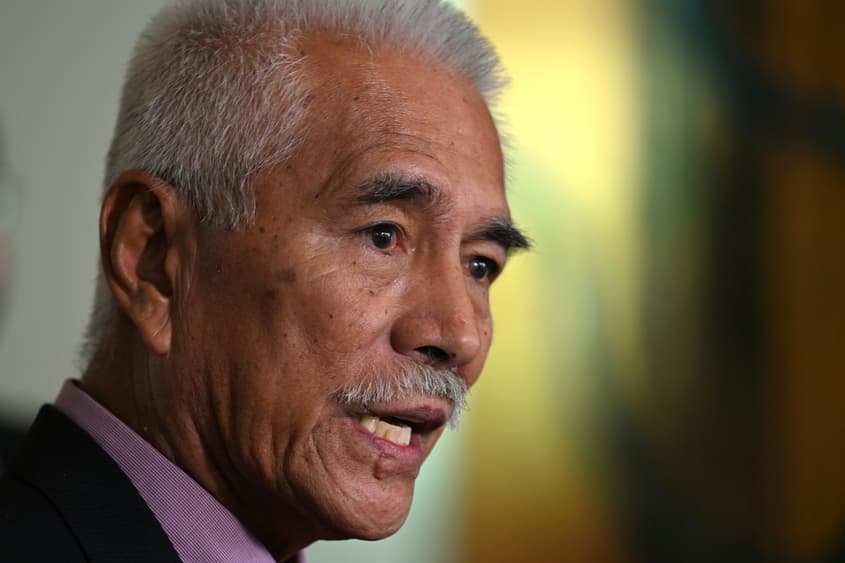The former president of the Republic of Kiribati, Anote Tong, has added his voice to the growing chorus of criticism of the Federal Government’s decision to extend Woodside’s highly polluting North West Shelf project in Western Australia.
Tue 16 Sep 2025 10.00

Photo: AAP Image/Mick Tsikas
The North West Shelf gas export terminal is equivalent to building 12 new coal power stations, adding around 90 million tonnes of emissions to the atmosphere each year.
Anote Tong, Kiribati’s former president, has labelled the Albanese government’s decision as “disappointing”.
“It is disappointing that at such a critical time for the health of the planet, the Australian Government decided to extend the highly polluting North West Shelf gas project,” he said.
“This is not consistent with Australia’s rhetoric on climate change.”
Mr Tong, who was recently in Sydney leading a dialogue on global climate action, also highlighted a recent decision by the International Court of Justice (ICJ), which confirmed that states have binding legal obligations under international law to prevent climate harm.
“(This decision) could breach an international court ruling on the responsibility states have to address climate change,” Mr Tong said.
“Climate change is a matter of planetary survival.”
Last week Prime Minister Anthony Albanese attended the Pacific Islands Forum, looking to strengthen Australia’s relationship with its pacific neighbours.
Mr Albanese reportedly faced significant pressure over Australia’s climate policies.
In the wake of the ICJ ruling, Polly Hemming, Director of the Climate & Energy Program at the Australia Institute, pointed out the decision proved Australia “can’t have it both ways”.
“Australia cannot have it both ways — claiming leadership in international forums while undermining it in others,” Ms Hemming said.
“We have legal obligations — not just moral ones — to stop fueling the climate crisis.”
The decision to the extend the North West Shelf comes less than two months after the ICJ ruling and just three days before the release of the long-awaited Climate Disaster Risk.
The assessment described “severe” risks to defence and national security; regional, urban, and remote communities; health and the environment.
It also highlighted “very high” risks to the economy and food production.